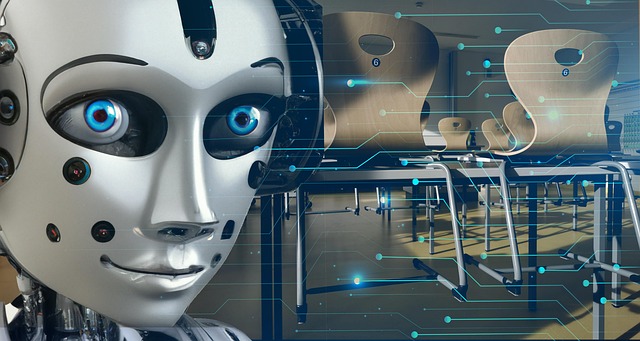Revolutionizing Industries: How AI Technology is Transforming the World
Artificial intelligence (AI) has been a buzzword in the tech industry for quite some time now. But what exactly is AI and how is it transforming industries across the world? In simple terms, AI is the simulation of human intelligence processes by machines, especially computer systems. It involves the development of algorithms that can perform tasks that normally require human intelligence, such as visual perception, speech recognition, decision-making, and language translation. With the rapid advancements in AI technology, it is revolutionizing industries in ways we never thought possible. In this article, we will explore how AI is transforming various industries and its potential impact on the future.
AI in Healthcare: Saving Lives and Improving Outcomes
One of the most significant impacts of AI technology is in the healthcare industry. With the help of AI, medical professionals can now analyze vast amounts of data and make more accurate diagnoses and treatment plans. AI-powered systems can detect patterns and anomalies in medical images, allowing for early detection of diseases such as cancer. This not only saves lives but also reduces the need for invasive procedures. AI is also being used to develop personalized treatment plans based on a patient’s genetic makeup, leading to better outcomes. Moreover, AI-powered robots are being used in surgeries, reducing the risk of human error and improving precision. With the use of AI, the healthcare industry is moving towards a more proactive and personalized approach to patient care.
AI in Finance: Enhancing Efficiency and Reducing Risk
The financial industry has also been quick to adopt AI technology. With the help of AI, financial institutions can now analyze vast amounts of data in real-time, making it easier to detect fraud and money laundering activities. AI-powered chatbots are being used to provide customer service, reducing the need for human representatives and saving time and resources. AI algorithms can also analyze market trends and make predictions, helping financial institutions make better investment decisions. This not only enhances efficiency but also reduces the risk of financial losses. With the use of AI, the finance industry is becoming more data-driven, leading to better decision-making and improved customer experiences.
AI in Manufacturing: Streamlining Processes and Improving Quality
The manufacturing industry is another sector that is being transformed by AI technology. With the help of AI-powered systems, manufacturers can now automate various processes, reducing the need for human labor and increasing efficiency. AI algorithms can analyze data from sensors and machines in real-time, predicting maintenance needs and preventing breakdowns, leading to less downtime and cost savings. Moreover, AI-powered robots are being used in factories to perform tasks that are dangerous or repetitive for humans. This not only enhances safety but also increases productivity. AI is also being used to improve the quality control process by analyzing data from sensors and cameras, detecting defects and ensuring consistency in production. With the use of AI, the manufacturing industry is becoming more efficient, cost-effective, and quality-driven.
The Future of AI: Potential Impact and Ethical Considerations
As AI technology continues to evolve and transform industries, it is essential to consider its potential impact on the future. On one hand, AI has the potential to create new job opportunities, especially in the tech industry. It can also improve the quality of life by automating tedious tasks and allowing humans to focus on more creative and meaningful work. However, there are also concerns about AI replacing human jobs and widening the income gap between the wealthy and the working class. Moreover, there are ethical considerations surrounding the use of AI, such as bias in algorithms and invasion of privacy. It is crucial for businesses and policymakers to address these concerns and develop ethical guidelines for the use of AI to ensure its responsible and beneficial integration into society.
In conclusion, AI technology is revolutionizing industries across the world, from healthcare and finance to manufacturing and beyond. With its ability to analyze vast amounts of data, automate processes, and make predictions, AI is enhancing efficiency, reducing risk, and improving outcomes in various sectors. However, it is essential to consider its potential impact on the future and address ethical concerns surrounding its use. As AI continues to evolve, it is crucial for businesses and policymakers to embrace its potential while also ensuring its responsible and ethical integration into society.

